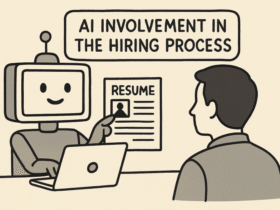What you do in the minutes, hours, and days after a car accident can shape how the entire situation unfolds. One wrong move and you could end up covering costs that aren’t your fault, or worse, missing out on compensation you’re legally entitled to. It’s not just about filing paperwork or swapping insurance details; it’s about knowing where you stand and how to protect yourself.
Too many people wait until it’s too late to think about their rights. Don’t be one of them.
First Things First—Stay Calm and Get Safe
No matter how minor or major the crash is, the very first step is making sure you and others are safe. If anyone is injured, call emergency services immediately. Safety always comes first.
If it’s safe, move the vehicles off the road to avoid further danger. Turn on your hazard lights, and stay out of oncoming traffic. Once the scene is secure, you can begin to take care of the legal and practical steps.
What to Say (and What Not to Say)
When you speak with the other driver, stay calm and polite, but be careful with your words. Don’t apologise or admit fault, even if you think you were partially to blame. Statements made in the moment can be used against you later. As any reputable car accidents lawyer Perth will tell you, it’s best to say the bare minimum. You don’t want to risk your words coming back to haunt you.
Instead, focus on gathering the right information. Ask for the other driver’s name, contact details, licence number, and registration. It’s also helpful to note the make, model, and colour of their vehicle. If there are any witnesses, get their details too.
Also, make a record of where and when the accident happened. Use your phone to note the exact time and location. It’s easy to forget details later when things get busy.
Use Your Phone to Document Everything
Your phone is your best friend in this situation. Take as many photos as you can. Capture the damage to both vehicles, the position they ended up in, and the surrounding area. Include any skid marks, road signs, or weather conditions. If there are injuries, and it’s appropriate, take photos of those too.
These images can be powerful later on when you need to explain what happened. They create a clear, unbiased record of the scene before anything is moved or repaired.
Report the Crash—Even If It Feels Minor
Depending on where you are, you may be legally required to report the accident to the police. This is usually the case if someone is injured, if a vehicle is towed, or if there’s suspicion of drink or drug driving.
Even if it doesn’t seem serious, filing a report is a smart move. It creates an official record, which can be important if there’s a dispute or if injuries become apparent later. It’s also something insurance companies often ask for when processing claims.
Don’t Ignore Medical Symptoms
It’s common to feel fine straight after an accident, especially with the adrenaline rush. But just because you feel okay doesn’t mean you are.
Injuries like whiplash, soft tissue damage, or even concussion can take hours or days to show up. That’s why it’s so important to see a doctor, even if you think you’re unhurt. A medical check-up ensures you’re safe, but it also creates a record that links any injuries to the crash. If you decide to make a claim, that documentation is essential.
Be Cautious When Dealing With Insurers
Shortly after the accident, you might hear from insurance companies—yours or the other driver’s. They might ask for a statement, offer a settlement, or start talking numbers. Take a breath before responding.
It’s completely okay to say you need more time or that you’ll follow up in writing. Don’t feel pressured into making statements on the spot. In fact, giving too much detail too early, especially if you’re still in shock, can come back to bite you.
If they offer a quick payout, be wary. Early settlements are often lower than what you may be entitled to. They might also come with terms that limit your right to claim more later, even if new injuries or costs come up. Always read the fine print and ask questions before accepting any offer.
Keep a Clear Record of Everything
Staying organised is one of the simplest ways to protect yourself. Create a folder, digital or physical, and store everything related to the crash in it. This includes the police report, medical records, repair quotes, receipts, and any written communication with insurers or other parties.
Also, make notes about how the accident has affected your life. Have you missed work? Needed extra medical appointments? Had to rely on others for help with daily tasks? These details can strengthen your car accident case if you seek compensation later.
Understand What You’re Entitled To
If the accident wasn’t your fault, you may be entitled to more than just car repairs. You could also claim for medical expenses, lost income, and sometimes even pain and suffering. But these rights don’t enforce themselves, you have to act.
There are usually strict time limits for lodging claims. Wait too long, and you could lose the opportunity completely. Even if you’re not ready to take legal steps, speak to someone who can help you understand your position. Knowing your rights early makes it easier to make informed decisions.
Time Moves Fast—Don’t Wait to Take Action
One of the biggest mistakes people make is thinking they have all the time in the world. But deadlines can creep up quickly. Insurers may delay, evidence can disappear, and injuries can worsen. The longer you wait, the harder it becomes to take control of the situation.
Even if everything feels overwhelming, start with one small step. Gather your documents. Make a call. Ask a question. Every action you take helps protect your rights and gives you a stronger foundation to stand on.
Stay Sharp, Stay Protected
A car accident can turn your day upside down, but how you respond can shape the outcome. Whether it’s making sure you’re medically checked, keeping records, or questioning an insurer’s offer, these aren’t small things—they’re key to protecting yourself.
You can’t always avoid a crash, but you can make sure you’re not left paying for someone else’s mistake. Knowing your rights and acting early puts you in the strongest position to move forward with confidence.







